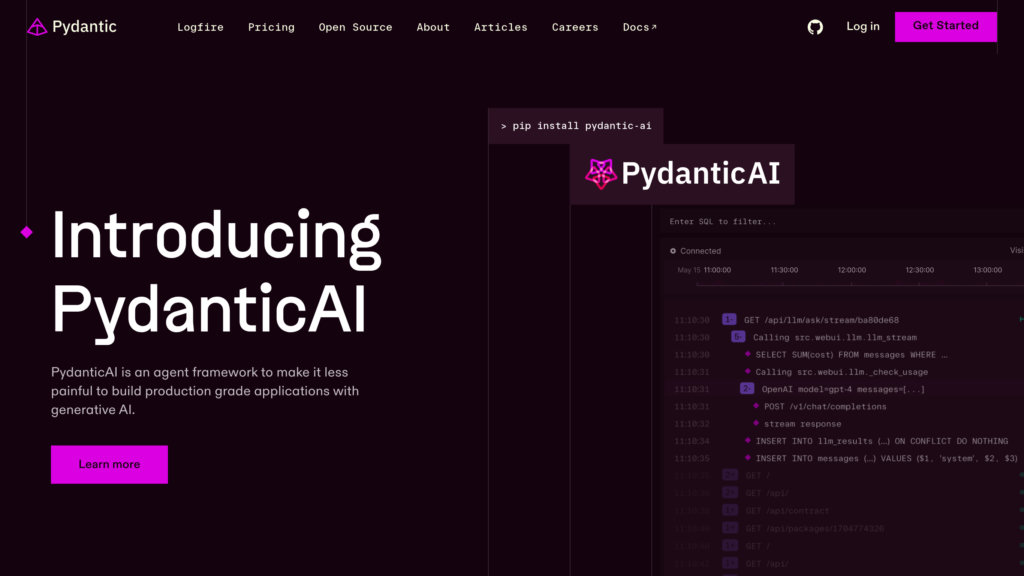Introduction
What is Pydantic?
Pydantic is a leading Python library that utilizes type annotations to enforce robust data validation and serialization. It allows developers to create data models with concise code, guaranteeing data integrity and type safety during execution. The library's core validation engine is crafted in Rust, delivering exceptional speed and establishing it as one of the fastest solutions available. It offers flexible validation modes (strict and lax), supports custom validators, and integrates seamlessly with Python's typing constructs like dataclasses and TypedDict. Pydantic is a cornerstone of the Python ecosystem, underpinning major frameworks such as FastAPI and LangChain, and is relied upon by leading technology companies globally.
Key Features
High Performance
Its Rust-based core ensures swift data validation, making it highly efficient for demanding production applications.
Type-Driven Validation
Uses Python's native type hints to automatically validate and parse data, minimizing repetitive code and enhancing IDE support.
Flexible Validation Modes
Accommodates various needs with options for strict validation (no type conversion) or lax validation (automatic type coercion).
Custom Validators and Serialization
Enables the definition of bespoke validation rules and serialization logic for handling intricate data structures.
JSON Schema Generation
Automatically produces JSON Schema from models, simplifying tool integration and API documentation processes.
Extensive Ecosystem Integration
Adopted by thousands of Python packages and frameworks, including FastAPI and LangChain, ensuring strong community backing and reliability.
Use Cases
API Data Validation: Guarantees that data flowing in and out of web APIs adheres to specified types and formats, minimizing runtime errors.
Configuration Management: Handles application settings with type safety and validation, supporting environment variables and complex nested configurations.
Data Serialization and Parsing: Converts Python objects to and from formats like JSON or dictionaries with built-in validation, ideal for database and API operations.
Runtime Type Enforcement: Validates data during runtime in Python applications, preventing the spread of invalid data throughout the system.
Integration with AI and ML Frameworks: Employed in AI agent frameworks such as PydanticAI to structure and validate outputs from large language models.
